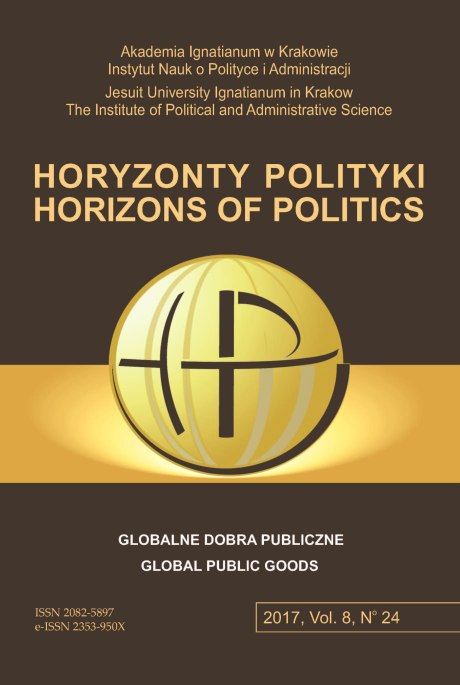Internet jako globalne dobro publiczne in statu nascendi
Internet as a global public good in statu nascendi
Author(s): Konrad PędziwiatrSubject(s): Social Informatics, Sociology of Politics, Globalization
Published by: Uniwersytet Ignatianum w Krakowie
Keywords: Information society; global digital divides; the Internet; global public goods;
Summary/Abstract: RESEARCH OBJECTIVE: The goal of the article is to answer the question whether Internet can now be seen as a global public good as suggested by the 2001 Internet Rights Charter (APC, 2001). THE RESEARCH PROBLEM AND METHODS: The Internet is one of the main components of the information technology revolution that has been transforming modern societies in such a way that the production, processing and transmission of information becomes one of the fundamental sources of productivity and power in them (Castells, 2000; 2008). At the end of 2016, we experienced global Internet connectivity transition when more than half of the world’s population gained access to the Internet (Internet Statistics, 2016), and the International Telecommunication Union pointed out that people were no longer accessing the Internet, but they lived online (ITU, 2016). The article responds to the aforementioned research question by referring to the concept of global public goods, analysis of the latest data on Internet usage and case study method. THE PROCESS OF ARGUMENTATION: The article consists of three parts. In the introduction, it outlines the development of the information society from a global perspective and the Internet as a global common good. Then it analyzes in detail the most important barriers that prevent the Internet from reaching the status of a global public good. The final part of the article is devoted to the analysis of selected international institutions seeking to popularize the Internet and fight with multidimensional digital divisions. RESEARCH RESULTS: The article shows, among other things, that the dynamic development of the information society affects only certain parts of the globe and only certain social groups and is not a universal phenomenon. It sheds light on circa 3.5 billion people in the world who are still deprived of access to the Internet. It also identifies the problems encountered by organizations fighting digital exclusion on a global scale. CONCLUSIONS, INNOVATIONS AND RECOMMENDATIONS: In the concluding part, the article states that the Internet has great potential to become a global public good in the future, but it is certainly not fully global public good today.
Journal: Horyzonty Polityki
- Issue Year: 8/2017
- Issue No: 24
- Page Range: 99-119
- Page Count: 21
- Language: Polish

